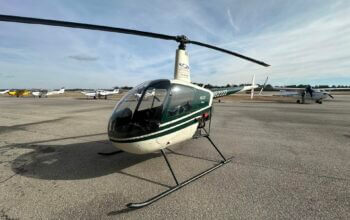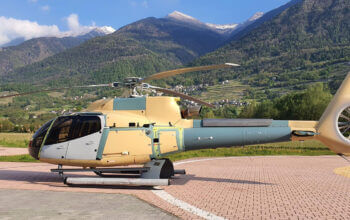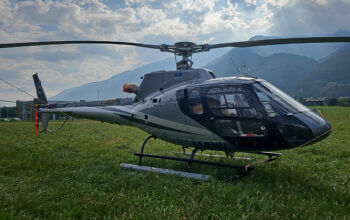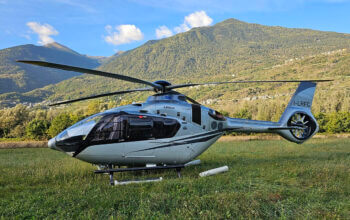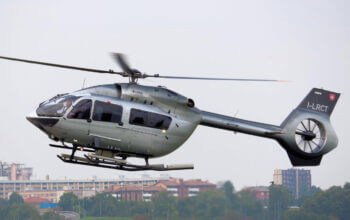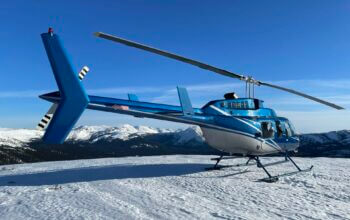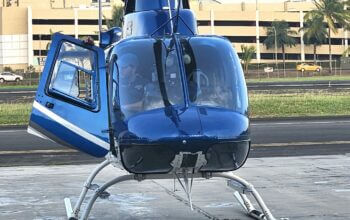Estimated reading time 8 minutes, 7 seconds.
In the early days of the Covid-19 pandemic, as aerospace companies worldwide were taking measures to reduce costs and conserve cash, the Meloche Group made a crucial decision to preserve its workforce. Employees who retired or left would not be replaced and shifts were adjusted. But the company committed to avoid the layoffs, furloughs, and other drastic steps some competitors were being forced to take.
“Our first priority was to make sure our employees were healthy, [but] the second priority was to protect their employment,” president and chief executive officer, Hugue Meloche explained in a recent interview. “We knew that the programs on which we were positioned would come back, and we knew a labor shortage would again become our main problem.”
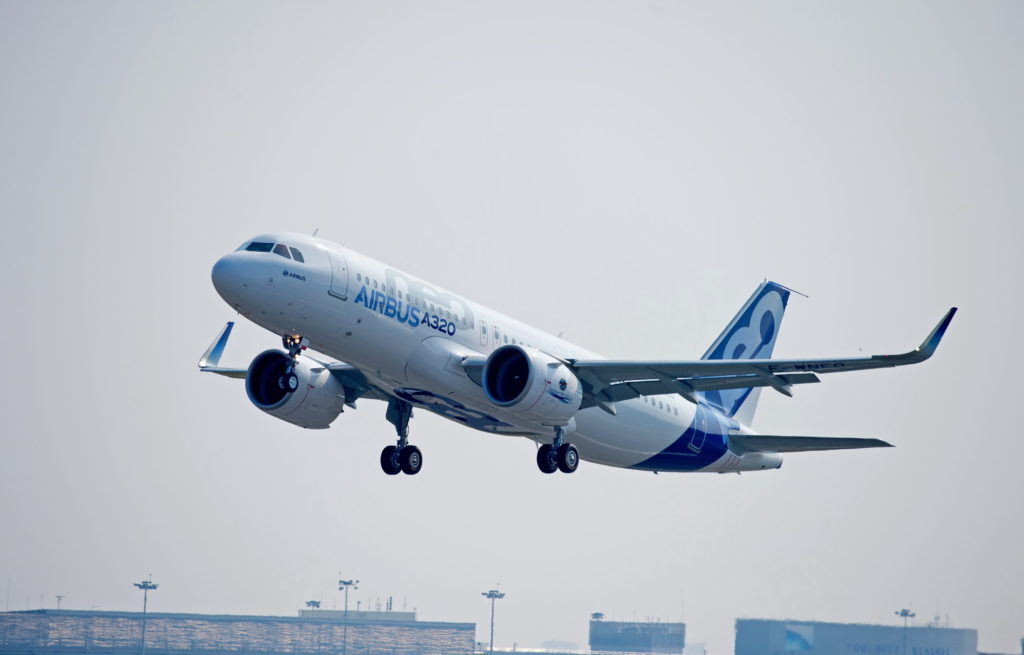
As airlines expand service and aircraft production slowly ramps up, especially on the Boeing 737 Max — the Meloche Group’s largest customer — that foresight is proving fortuitous. Labor concerns are again Meloche’s “number one, number two, and number three challenges.”
The Quebec-based Meloche Group specializes in aerostructure and aircraft engine components. Founded in the mid-1970s, it operates five manufacturing and research and development facilities in Salaberry-de-Valleyfield, Beauharnois, Bromont, and Montreal. Before the pandemic, the workforce was around 320. Despite altering work weeks and managing shifts to retain employees, that number dropped to about 260.
Though the workforce is now back to approximately 300, a shortage of skilled workers could prove to be the limiting factor in an ambitious plan to grow company sales to $200 million by 2026.
As with many in the sector, the Meloche Group saw revenue plummet as aircraft were parked, repair and overhaul slowed, and new manufacturing dwindled. The company is still recovering that lost ground and expects to regain its pre-pandemic sales revenue of around $90 million by the end of 2022.
Nonetheless, it is banking on smart technology investments and rapid demand for complex machined components and subassemblies to drive growth. Meloche Group is an engine component provider on the PW1100G-JM geared turbofan engine on the Airbus A320neo, as well as the CFM International LEAP-1B on the Boeing 737 Max.
“This is going to ramp up fast,” Meloche said of the narrow-body airliner that was grounded between March 2019 and December 2020. Meloche Group has weathered the economic “crises” of both the 737 Max and the pandemic, and now faces a component production challenge “because it is picking up.”
The company has contracts with OEMs and Tier 1 suppliers from Airbus and Boeing to Bell, Bombardier, GE Aviation, Pratt & Whitney and Safran. In July, it was recognized as a Diamond Supplier by Bombardier and previously received Gold Supplier certification from United Technologies (now Raytheon Technologies) and Pratt & Whitney. Meloche expects the projected growth to come from those long-term customers. New clients require considerable time and cost to certify components and production processes, he noted.
“We might develop one or two [new clients] in the next five years, but the growth will be pretty much with our existing customers.”
Programs with growing backlogs such as the Bombardier Global 7500 and Airbus A220 are “actively looking for cost-saving solutions,” he said. “When a plane is certified and gets into production, supply chain people go out on the market to find better pricing, and often that is where we come in. We offer automated technologies – proper 4.0 technologies – we sign long-term agreements with them, [and] we can be competitive globally with our pricing.”
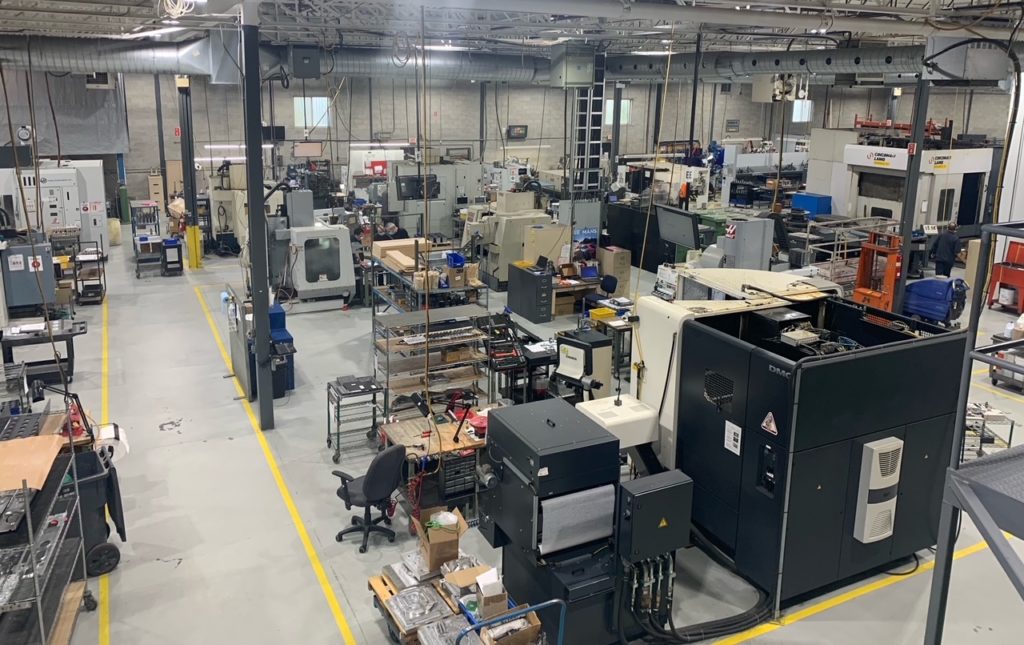
The Meloche Group was an early participant in Aero Montreal’s MACH and MACH Fab 4.0 initiatives to help small- and medium-sized businesses in Quebec improve their corporate processes and identify how best to introduce robotics and capture and utilize data, all with an aim to assist them to scale up. As part of a $25 million investment in new technologies, the company completed a collaborative MACH Fab 4.0 project with ABIPA Canada, a high-precision machining and specialized metal components company, to better understand and make use of their collective data.
Much of that R&D activity was paused during the early months of the pandemic, but the Meloche Group quickly resumed its “4.0 journey” of expanding digitalization and automation technologies to come through the pandemic better positioned to scale up its CNC machining, turning stations, and surface treatment technologies.
“We now collect a lot of data from our machines, and we are able to analyze it and make intelligent decisions,” said Meloche.
He is forecasting a similar technology investment of around $25 million over the next five years, in part to help the company address labor shortages. “That is a focus for us. With every contract, we have teams that look at how we can do [work] differently, how we can automate,” he said. “We work intelligently to require less people.”
Still, the Meloche Group is looking for more specialized employees, including operators, machinists, and inspectors. The company has capitalized on government-supported immigration programs to fill some of that need, but “red tape kind of things” have caused some administrative delays, Meloche said.
Analysts differ on how long the aerospace sector will take to recover from the pandemic, but Meloche is anticipating “very strong growth” after 2023 for single-aisle aircraft, and a somewhat longer runway for larger airframes.
“Some of our customers in the engine world are big on MRO, and that will take a while to recover because those large aircraft, for some of them, are still parked,” he noted. However, the likely surge in demand for components suggests his $200 million sales target may be achievable.

